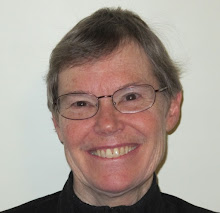I rode a bus to school every day for many years, so for me, busing was routine. I considered it a normal activity. The time on the bus (up to 45 minutes each way) was actually rather pleasant, a good time to be with other children without parents or a teacher present. It was sort of like recess.
For my busy parents, who both worked, the longer school day (extended by busing) must have been helpful. Looking back now, I'm tempted to use the phrase 'free childcare'!
In the 1970's, when I was a young mother living in another state, I was puzzled by all the furor over "school busing" in Boston and elsewhere. Why did parents express such horror that their children might have to ride on a bus to a distant school? I wondered why my parents had never expressed any opposition. I thought about my own experiences, and couldn't think of a reason to oppose the bus rides. So it seemed obvious to me that people who opposed desegregation were using the arguments against school busing as a cover for their real opposition to racial integration. My first child was walking to an integrated school in our neighborhood, so neither busing nor integration were controversial there.
Today I live in a school district where parents get angry if busing is denied to their children. (Reductions in budgets have led to cuts in busing services.) Maybe the core problem is resistance to change. People fight to keep the status quo.
Subscribe to:
Post Comments (Atom)

1 comment:
I was a child of the 70's in Danvers, during all the busing issues. The point was moot in Danvers, as there was never any real chance of being bused elsewhere that I can recall.
In Danvers, we lived in Woodvale first, then up by the Prep from 1968 on. It was a nice neighborhood, mostly caucasian, but there were several African American families. In terms of income, I believe that the minority families had greater resoucres than the caucasian.
Because we all shared the same buses going to the same schools, I can honestly say that, though we had "pet" names for each other, there was no real derogatory issue with the sharing of the bus and the desegregation issue. We had no negative experiences that seemed to overtake the communities close to Boston.
I now live inthe south, and I can tell you I came here pure of heart. This was actually something that bothered my fellow race members. I was told repeatedly that I was making the wrong friends, and making a bad example of myself. It is unfortunate that, here, I have found the different races seem to relish keeping alive the negativity and differences associated with minorities and whites, and the oomplexities therein.
It does eem to me that we were a little more innocent in our little town of Danvers. This has served as both a plus and a minus for me
Post a Comment